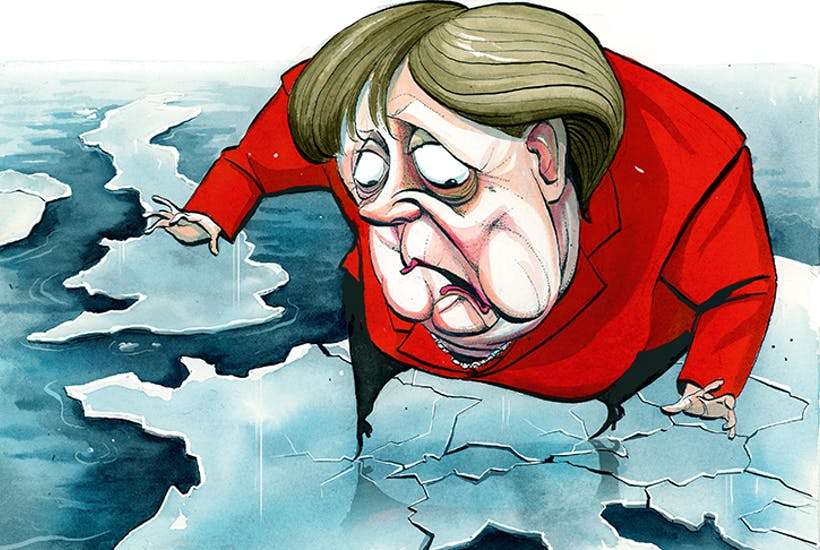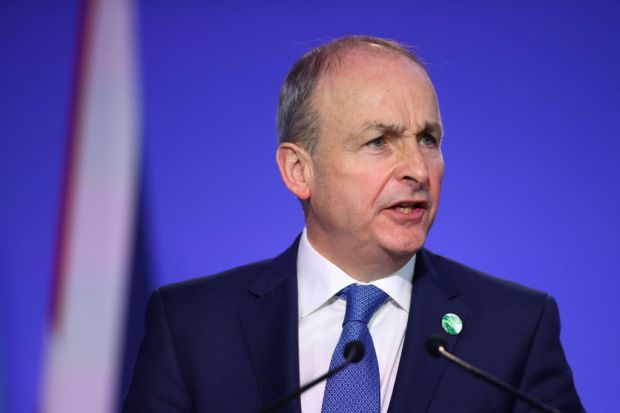Germans are increasingly losing faith in the European Union due to its bungled handling of the vaccine roll-out. Germany and the other member states have assigned Brussels to organise and oversee the procurement and distribution of Covid jabs. But, so far, the roll-out has been a logistic mess.
According to a poll by Civey, commissioned by the German newspaper Der Spiegel, more than 60 per cent of German citizens said their view of Brussels had worsened in light of the disastrous vaccination management. Almost 70 per cent laid the blame at the feet of fellow German Ursula von der Leyen, the President of the European Commission, who admitted last week that ‘mistakes were made’ in the bloc’s approach to the procurement of jabs.
‘The criticism of the EU comes from all political camps,’ Der Spiegel noted. ‘Among supporters of the Christian Democrats, the Social Democrats, the Greens and the Left, more than half said that their image of the European Union had deteriorated. The proportion was even greater for supporters of other parties.’ Remarkably, even the majority of Christian Democrats blame von der Leyen personally for the botched vaccine roll-out. She has been a leading Christian Democrat for two decades and served in several of Chancellor Angela Merkel’s cabinets before going to Brussels.
The results underline the fact that Germans are less and less concerned about the success of individual parties in this election year, despite there being important state elections in the spring and the general election in September. Amid the ongoing lockdown, which includes the closure of restaurants and most shops and schools, they simply demand a quick path back to normalcy no matter what it takes. As of this week, 4.4 million Germans have received a Covid vaccine shot – only 5.3 per cent of the population. Herd immunity is said to be reached at a percentage between 60 and 70 per cent.
Despite the growing resentment towards the EU, political consequences are not expected. Just a few days ago, Merkel and French President Emmanuel Macron showed their support for the EU and defended their decision to hand over the vaccine management to Brussels. The strategy ‘was and still is right,’ Merkel said.
The German Chancellor also took some of the blame for the outbreak of the second wave, after Germany was much less affected by the first wave in the spring of 2020. ‘After that, we were not careful and also not quick enough,’ she stated. Merkel argued that her governments and the state governments in Germany did not shut down public life fast enough when the second wave was on the horizon in early fall last year.
Besides the bungled roll-out, another factor that also slows down the vaccination process in Germany is the ‘freedom of choice’ some federal states grant their citizens, meaning they can choose which vaccine they want to take. In the state of Berlin, only a fraction of available AstraZeneca jabs have been administered. Interestingly, doctors and other medical personnel, who are supposed to receive the shots early, have shown concerns about the effectiveness of AstraZeneca’s product and side effects, which some colleagues experienced after receiving the jab. With Berlin increasingly frustrated with the slow roll-out, it removed the freedom to choose for people under the age of 65 and announced that anyone who is assigned AstraZeneca’s jab cannot get another product.
The concern towards AstraZeneca is not only based on recent research but also the effect of political decision-makers in Brussels trying to deflect blame for the vaccine crisis on to the producers. ‘The EU has already reached herd immunity – sadly, only against criticism,’ one Der Spiegel commentator wrote. That sums it up quite nicely.
Got something to add? Join the discussion and comment below.
Get 10 issues for just $10
Subscribe to The Spectator Australia today for the next 10 magazine issues, plus full online access, for just $10.




















Comments
Don't miss out
Join the conversation with other Spectator Australia readers. Subscribe to leave a comment.
SUBSCRIBEAlready a subscriber? Log in